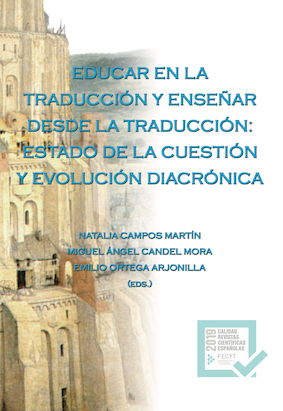Using bilingual parallel corpora in translation methodology: an analysis of students’ translation competences in the UCMA-MUST corpus (English-Spanish)
DOI:
https://doi.org/10.7203/qf.24.16298Keywords:
UCMA-MUST, specialised translation, parallel corpora, translation competences, tagging Abstract
Abstract
The Multilingual Student Translation (MUST) Project (Granger & Lefer, 2018: 72) aims to compile a multilingual parallel corpus of translations carried out by inexperienced learners. Within this project, the MUST partner UCMA (Complutense
University of Madrid) contributes to the global MUST project with a bilingual subcorpus containing student-translated specialised texts in the fields of media and humanities, among others. Bearing in mind the five sub-competences that contribute to the acquisition of a translation competence, namely linguistic, extra-linguistic, transfer, professional, psychophysiological and strategic (PACTE 2001, 2003), this study aims to detect the weaknesses and strengths present in the students’ tasks when translating from English into Spanish. To do so, the TAS annotating system put forward by Granger & Lefer (2018) and Granger, Lefer & Penha Marion (2018), together with a sample of humanistic texts translated by trainee translators at a university (postgraduate) level and retrieved from the UCMA corpus has been used as means of exemplification.
 Downloads
Downloads
Downloads
Published
How to Cite
-
Abstract647
-
PDF (Español)446
Issue
Section
License
 Este obra está bajo una licencia de Creative Commons Reconocimiento-NoComercial-SinObraDerivada 4.0 Internacional.
Este obra está bajo una licencia de Creative Commons Reconocimiento-NoComercial-SinObraDerivada 4.0 Internacional.
Authors who publish with this journal agree to the following terms:
- Authors retain copyright and grant the journal right of first publication with the work simultaneously licensed under a Creative Commons Attribution License that allows others to share the work with an acknowledgement of the work's authorship and initial publication in this journal.
- Authors are able to enter into separate, additional contractual arrangements for the non-exclusive distribution of the journal's published version of the work (e.g., post it to an institutional repository or publish it in a book), with an acknowledgement of its initial publication in this journal.
- Authors are permitted and encouraged to post their work online (e.g., in institutional repositories or on their website) prior to and during the submission process, as it can lead to productive exchanges, as well as earlier and greater citation of published work (See The Effect of Open Access).




